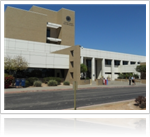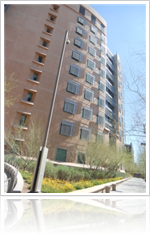Articles Tagged with Criminal Arrest
Misdemeanor charges in Gilbert, AZ

The Firm represents individuals charged with any misdemeanor violation as well as matters involving order's of protection, restraining order's and violation of restraining orders in the Gilbert Municipal Court. A class 1 misdemeanor in Arizona carries a maximum penalty of up to 6 months in jail and $2,500 fine (plus surcharges). If you have been issued a criminal traffic citation or received a summons by mail in the Town of Gilbert, you will be required to appear in court for your Arraignment hearing. A failure to appear in court on your Arraignment date, or any other criminal court date could result in a warrant for your arrest and trial could also proceed in your absence. What can you expect at your Arraignment hearing? At this hearing, you will enter one of three pleas to the charges you are facing, 1) a plea of Not Guilty, 2) a plea of Guilty, or 3) a plea of No Contest. It is critical to seek the advice of counsel and understand the consequences of each of these plea options before making any decisions. Depending on how you plea to the court will determine the next steps in your case.
If you enter of plea of Guilty or a plea of No Contest, the next step will be sentencing which may result in a criminal record, fees and fines, jail and/or probation, possible DMV consequences, possible immigration consequences and required classes, such as alcohol, anger management or other types of classes. Before making these decisions, it is advisable to seek the advice of counsel to understand your rights and legal options.
If you enter a plea of Not Guilty, the Court will set your case for a Pre-Trial Conference hearing. At the Pre-Trial Conference hearing, you and your attorney will have an opportunity to discuss your case with the assigned prosecutor, obtain copies of the discovery, which could include the complaint, police report, witness statements, photographs, audio/video recordings, blood/urine/breath results, and any other evidence the prosecutor will use to prove their case against you in court. If you and your attorney are able to negotiate an acceptable plea resolution at this time then your case will be set for a change of plea and sentencing hearing. However, if the parties are unable to reach agreement on acceptable terms for case resolution, your case may then be set for a bench or jury trial. Whether you are eligible for a jury trial will depend on what type of charges you have pending. Your attorney will be able to advise whether or not your case is eligible for a jury trial. This Firm has handled countless misdemeanor cases and has achieved favorable outcomes in these types of cases, ranging from full dismissal of charges, to acquittal after bench or jury trials, to settling the case to a reduced charged. Every case presents with a unique set of circumstances and no guarantees can be made as to the outcome of your case. The attorney has a reputation for zealously defending each of his clients and will launch an aggressive defense on your behalf.
Reckless Driving Ticket
A reckless driving ticket in AZ is a serious criminal traffic violation in terms of associated penalties upon conviction. Reckless driving is defined in section 28-693 of the Arizona Revised Statutes as:
- A person who drives a vehicle in reckless disregard for the safety of persons or property is guilty of reckless driving.
- A person convicted of reckless driving is guilty of a class 2 misdemeanor.
The penalties associated with a reckless driving conviction (first offense) can include up to a maximum of 4 months in jail, a $750.00 fine (plus 84% surcharge) and suspension of driving privileges for up to 90 days. In addition, this is 8 points against your driver's license and can also cause a substantial increase in your car insurance rates. If a person has a prior history of reckless driving within a 24 month period, this can be charged as a class 1 misdemeanor, which, if convicted, can result in jail time of up to 6 months (20 days minimum), up to a maximum of $2,500.00 fine (plus 84% surcharge), and revocation of driving privileges.
Criminal Damage Charges in Phoenix
Criminal Damage Charges
Criminal damage charges can range in severity from a low level misdemeanor to a more serious felony, depending on the allegations. For example, if a person recklessly damages property valued at more than $250.00 but less than $1,000.00 dollars, then this would be charged as a class 1 misdemeanor. In the most serious cases, criminal damage can be charged as a class 4 felony if the damages are valued at $10,000 or more (or $5,000 or more if the damages involved the property of a utility). The penalty for misdemeanor criminal damage charges, if convicted, can be up to a maximum of six months in jail and a $2,500.00 fine. Felony charges can result in up to a maximum of 3.75 years in jail. The consequences of a criminal conviction can be significant and long lasting, including a criminal record, exposure to incarceration, fees and fines, probation services, and can have a negative impact on current or future employment aspirations. If you have been charged with a criminal damage violation, the Firm can review your case at no charge and discuss your legal options. Contact the Firm today to arrange your free consultation (602) 825-3300.
Know Your Rights – The Miranda Warning
If you have been arrested for a DUI or any other criminal violation, it is important to understand your rights. Before police begin questioning a suspect, the officer is required to read you a Miranda warning, reminding you of your rights. Listed below is an example of typical language used in a Miranda warning:
- You have the right to remain silent and refuse to answer questions.
- Anything you say may be used against you in a court of law.
 Arizona DUI & Criminal Defense Lawyer Blog
Arizona DUI & Criminal Defense Lawyer Blog




